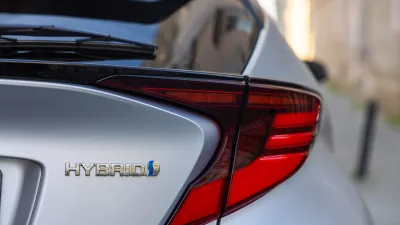With little investment from venture capitalists, cleantech startups are relying increasingly on traditional energy corporations for financial support.
Eager to avoid environmental problems, improve their public image, comply with regulations and increase production, oil and natural gas companies have begun investing in next-generation technologies, such as waste water treatment solutions.
With Obama's "all of the above" energy policy, fossil fuels are here to stay, writes Ucilia Wang adding that energy companies are investing in renewables as a defense against sudden policy change.
"The growth of the renewable electricity sector will be tied to natural gas," explains Wang. "Solar and wind generation can't produce power around the clock, and utilities will have to match clean power with 24/7 energy like natural gas."
According to Wang, for now, fossil fuels and renewables exist in symbiosis, with oil and natural gas corporations controlling the vast majority of transportation and electricity generation.
FULL STORY: Where the money is in cleantech: oil and gas

Maui's Vacation Rental Debate Turns Ugly
Verbal attacks, misinformation campaigns and fistfights plague a high-stakes debate to convert thousands of vacation rentals into long-term housing.

Planetizen Federal Action Tracker
A weekly monitor of how Trump’s orders and actions are impacting planners and planning in America.

Chicago’s Ghost Rails
Just beneath the surface of the modern city lie the remnants of its expansive early 20th-century streetcar system.

Bend, Oregon Zoning Reforms Prioritize Small-Scale Housing
The city altered its zoning code to allow multi-family housing and eliminated parking mandates citywide.

Amtrak Cutting Jobs, Funding to High-Speed Rail
The agency plans to cut 10 percent of its workforce and has confirmed it will not fund new high-speed rail projects.

LA Denies Basic Services to Unhoused Residents
The city has repeatedly failed to respond to requests for trash pickup at encampment sites, and eliminated a program that provided mobile showers and toilets.
Urban Design for Planners 1: Software Tools
This six-course series explores essential urban design concepts using open source software and equips planners with the tools they need to participate fully in the urban design process.
Planning for Universal Design
Learn the tools for implementing Universal Design in planning regulations.
planning NEXT
Appalachian Highlands Housing Partners
Mpact (founded as Rail~Volution)
City of Camden Redevelopment Agency
City of Astoria
City of Portland
City of Laramie





























